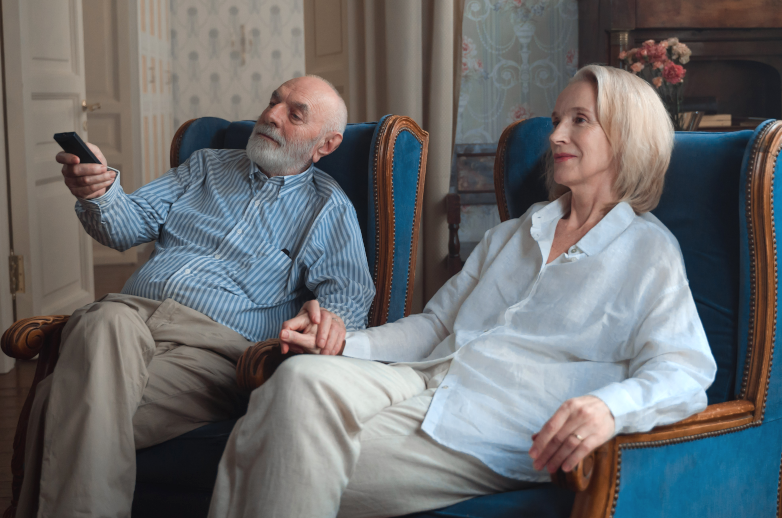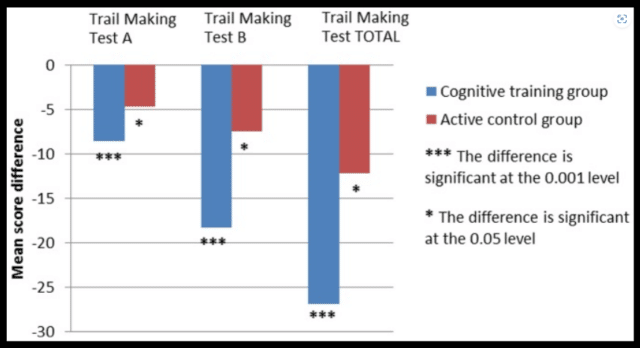
Interactive Television Test For Seniors Looks Promising
When it comes to CogniFit’s Research Platform, the only real limit is a researcher’s creativity. This was the case with Evelyn Shatil, Jaroslava Mikulecká, Francesco Bellotti, and Vladimír Bureš. They wanted to know if interactive television would help seniors’ cognitive functions.
But before we dive into the interesting details of the experiment, it’s important to know exactly what iTV is (and the other competing terms out there).
What Is Interactive Television
Let’s start with what it’s NOT. It’s not Apple iTV. Nor is it the iTV television network in the UK. These are unrelated terms and are often confused with each other.
The iTV is a kind of media coverage that adds date services to television technology. This has included on-demand content, online shopping, banking, etc. The key idea is that it’s integrated into established tech (even commercial structures) rather than the internet.
Television has always had some sort of interactivity, including:
- Low – turning the TV on or off, changing channels, or turning the volume up/down
- Moderate – things like movies on demand that don’t have player controls.
- High – shows where viewers can change the story, real-time voting, etc.
However, it wasn’t until the 1990s that TV could finally go from low to moderate interaction. This was simply because we didn’t have the technology (specifically bandwidth) to pass huge amounts of data that the content needed. The poor copper telephone cables just couldn’t handle the workload.
And to put this in perspective, copper wire could send 200 Mbit/s. But video on-demand services would need a bandwidth 2000 times greater to give any decent quality.
Some examples of interactive television content include:
- “Accidental Lovers” – viewers could send mobile text messages to the broadcast and the plot transformed on the basis of the keywords picked from the messages.
- Global Television Network offers a multi-monitor interactive game for Big Brother 8 (US) “‘In The House'” which allows viewers to predict who will win each competition, who’s going home, as well as answering trivia questions and instant recall challenges throughout the live show. Viewers login to the Global website to play, with no downloads required.
- Hugo Game – viewers called the production studio and were allowed to control the game character in real-time using telephone buttons by studio personnel, similar to The Price Is Right.
- Clickvision Interactive Perception Panel used on news programmes in Britain, a kind of instant clap-o-meter run over the telephone.
- During the 2012 Australian Open viewers used the app to suggest questions for commentator Jim Courier to ask players in post-match interviews.
- Netflix specials like Black Mirror: Bandersnatch, Trivia Quest, You vs The Wild, and The Unbreakable Kimmy Schmidt
The Interactive Television Experiment
The full title of the paper is “Novel television-based cognitive training improves working memory and executive function.” The idea was to see if using cognitive games within iTV formats would help older people improve their brain functions.
- The team of researchers took 119 healthy older adults between the ages of 60-87 years.
- Participants were randomly put into to a cognitive training group or to an active control group (in a single-blind controlled two-group design).
- “Before and after” cognitive performance was assessed on well-validated tests of fluid, higher-order ability, and system usability. (Which is their fancy way of saying they tested everything before and after the experiment).
- The ones in the cognitive training group completed a television-based cognitive training program.
- The people in the active control group completed a TV-based program of personally benefiting activities. (Although the research paper didn’t give details about these activities).
The Experiment Results
There were large improvements observed in working memory and executive function tasks in the cognitive training but not in the control group.
However…
None of the groups showed a “statistically significant improvement” in life satisfaction scores. Meaning, they didn’t feel happier or sadder with their lives for having used the interactive materials.
Participants also reported “adequate” to “high” system usability. So, they found the systems quite easy to use.
All in all, the study shows that cognitive training delivered through an interactive television system can generate genuine cognitive benefits in users. Therefore, older adults who cannot use or afford a computer can easily use digital interactive television to benefit from advanced software applications designed to train cognition.

But Why iTV When Computers Are Cheap Now?
This is where we get into something a bit more cultural (but with plenty of research).
As we get older, we can easily acquire and store general and cultural knowledge (assuming there are no major brain disorders that block us). However, we also can lose the ability to “observe complex relationships and then infer or predict subsequent relationships or actions from what we witness. Even in our 40s things start to decline in this area.
And the meaning of “complex relationships” isn’t talking about interacting with people. Instead, we can use the example of computers. To a younger mind, the complicated, digital workings and outcomes seem simple, but as someone gets older, they could become harder to process. They can also become daunting.
So, the “seniors avoiding tech” stereotype does have some real-life grounding. For older generations, the television is familiar and easy to use. So, moving cognitive training over to an iTV format instead of the internet will be less intimidating. Then, they can benefit from cognitive training. They can work the parts of their brain that will help them improve diminishing abilities (even things like understanding complex relationships).
You can also see it from a psychological standpoint – that iTV could be a gentle stepping stone into the complicated world wide web.
Interactive Television Conclusion
This study shows the endless possibilities that seniors could have when it comes to media content. And not just for entertainment, but for brain improvement as well. So, if there’s someone in your life that you think could benefit, start researching the iTV options in your area (specifically ones with brain games). There are significant improvements waiting!












